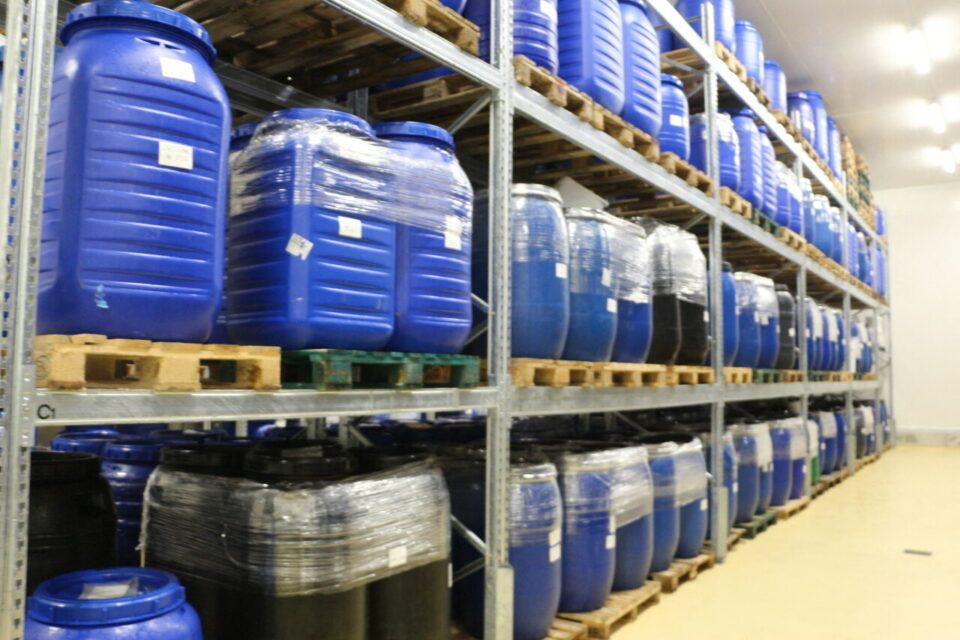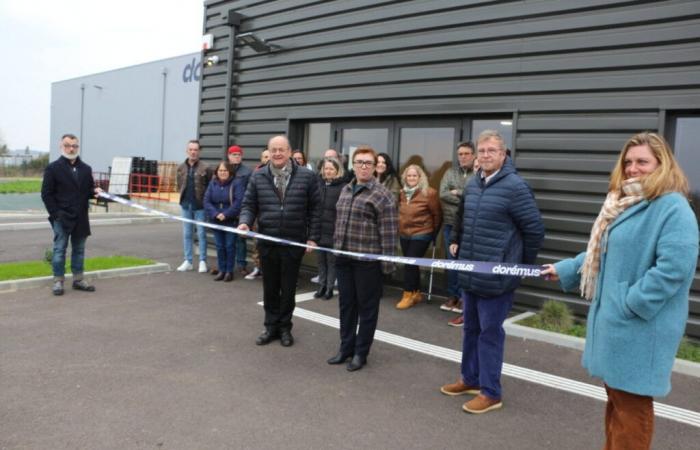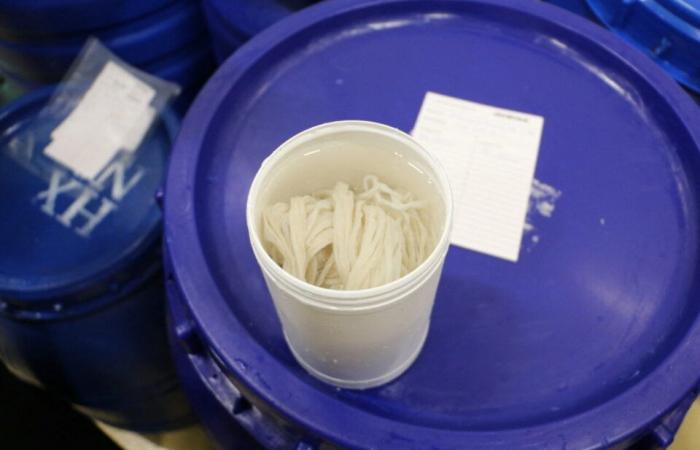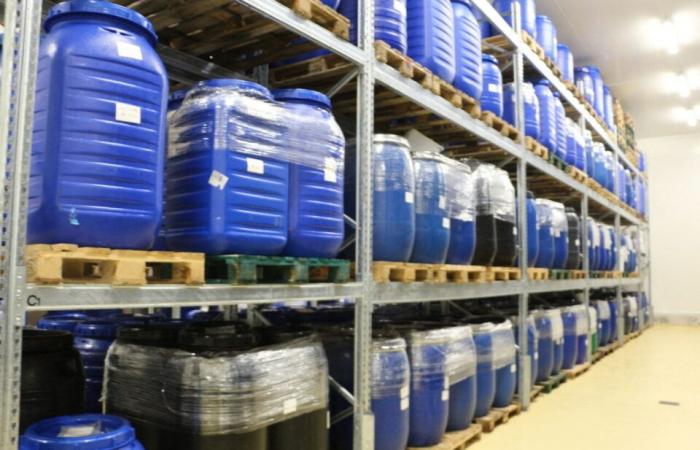Par
Pierre Boissonnat
Published on
Jan 12, 2025 at 7:16 p.m.
Without them, we would not enjoy black pudding at Christmas, nor chipolatas or merguez in summer. The company Doremus although she may be a hundred years old, she nonetheless lived through a historic day, Friday December 13, 2024by inaugurating its new production unit in Courcelles-sur-Seinebetween Les Andelys and Gaillon (Eure).
“It’s a big change for us because we moved from one bank of the river to the other leaving our historic site of Saint-Étienne-sous-Bailleul “, underlines Anne-Séverine GrojeanCEO of the company and who represents the 5th generation of the family to run the hose factory founded by Louis Dorémus in 1912.
From the old mill to a modern factory
Philippe Grojean, Anne-Séverine’s father, present for this event, recounts the genesis of the family factory.
“My grandfather discovered Saint-Étienne-sous-Bailleul thanks to a cousin. He then bought an old mill located away from the village at the bottom of the valley. It was an ideal site for a hose works because it is an activity that requires a lot of water. And it was also ideal because the mill was far from homes, which limited olfactory nuisances for the neighbors”
Little by little, Dorémus develops thanks to its natural guts which are used for food. “We produce up to 10,000 km of hoses per year. These casings are used both by the Gaillon butcher for its artisanal sausages and by sausage manufacturers in France or Germany,” indicates Anne-Séverine Grojean.
Know-how for working with hoses
The company that counts 14 employees concentrates its production on sheep casings (60% of production), pork casings (35%) and to a lesser extent beef casings (5%). “Our production makes it possible to recycle what is considered waste in slaughterhouses,” explains the manager of the factory, which uses raw material from New Zealand, Australia or China.
And the production process remains very artisanal.
“After scraping, we have to salt the guts for 30 days. Then, we proceed to desalting and untangling the casings,” describes Anne-Séverine Grojean. These operations precede calibration according to customer requests.
“This is still done by hand and requires great dexterity. Sheep gut is more fragile and requires finer hands, which is why most of the employees who work this product are women.
Conversely, working with pork or beef intestines is more the prerogative of men.
An investment of 2.4 million euros
To continue to grow, Euroise tubing, which is among the 30 most important companies in this sector in France, has therefore decided to move to Courcelles-sur-Seine. To build its new 1,500 m2 site in the Trou à Crillon activity areaDorémus paid 2.4 million euros and was accompanied by the Seine-Eure Agglomeration, whose president, Bernard Leroy was present during the inauguration, and the Normandy Region.
“We were cramped in our factory. The main innovation on this site lies in our unique cold room which replaces the 8 units that we had scattered across our previous factory,” explains Anne-Séverine Grojean. After ten months of work, the hoseworks began operating in its new factory in March 2024.

In 2023, Dorémus achieved a turnover of 11 million euros.
“We are heading into a more difficult year. Our activity fluctuates and is closely linked to the consumption of sausages during the summer, during the barbecue season. This year, as the weather has been difficult, the results will not necessarily be at this level”
Since moving to Courcelles-sur-Seine, Dorémus has made two hires and plans to continue next year. “We hope to be able to create 2 to 3 jobs in 2025. These are unskilled jobs. But, given the specificity of our activity, we train employees internally,” informs Anne-Séverine Grojean.
Follow all the news from your favorite cities and media by subscribing to Mon Actu.








